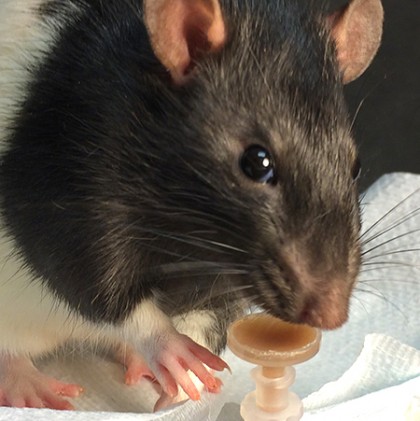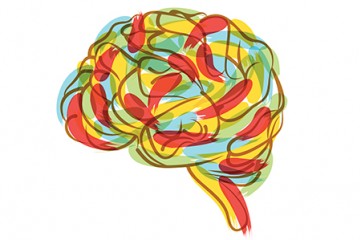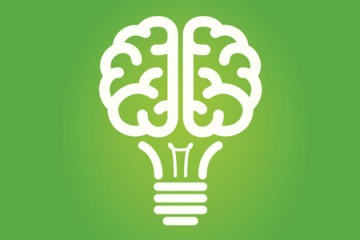You're shipwrecked on a desert island. You wander from your base camp in desperation, searching for water. You find a stream with fresh, clear water, the best you've ever tasted. But one problem: There's no trace of how you got there, and you're not sure you can find it again next time.
Johns Hopkins neuroscientists believe they have figured out how the brains of some mammals—in this case, rats—solve such navigational problems. If there's a "reward" at the end of the trip, like the chocolatey drink used in their study, the brain will "replay" the route taken to get it, but backward. And the greater the reward, the more the rats' brains replay it.

Specifically at work here are specialized neurons in the hippocampus, the area of the brain associated with memory, emotion, and motivation. According to researchers, the findings suggest that both the presence and amount of a reward influence how well the hippocampus forms memories.
A summary of the new research is published online in the journal Neuron.
"We've long known that the brains of awake animals have these replay events when they pause in their travels," says David Foster, a professor of neuroscience at the Johns Hopkins University School of Medicine. "Now we know that the information in those replays is influenced by reward, probably to help solidify those memories."
As animals—including humans—travel through an environment, their brain waves oscillate, Foster notes. When they pause, and when they are in slow-wave sleep, the brain waves calm down, oscillating more gently, except for one or two deep waves per second. It's in those brief moments when the "replays" occur in specialized hippocampal neurons, he explains.
Previous research in Foster's lab revealed that rats actually "envision" their routes in advance through sequential firing of hippocampal neurons. And the researchers knew that sometimes, during pauses, rats replayed those sequences in reverse—but no one knew why.
In the new study, the rats ran back and forth on a linear track between points A and F. And when researchers altered the amount of the liquid chocolate reward at point F, they discovered an effect on the hippocamal neurons. The number of "reverse replay" sequences in the rats' brains would increase or decrease in unison with the change in the reward.
"We think this is the brain's way of linking a reward with the path taken to reach that reward," Foster says.
Back on the desert island, if the same mechanism occurs in humans, Foster says, the process could help an individual recall how to get back to the stream by adding significance to previously unimportant details of one's surroundings.
Foster says more studies are needed to see if the findings do indeed apply to humans. But, he adds, he believes the research already suggests the importance of giving the brain frequent pauses, since the replay sequences only occurred when rats took their chocolate break.
Read more from Hopkins MedicinePosted in Health, Science+Technology
Tagged brain science, neuroscience, memory










